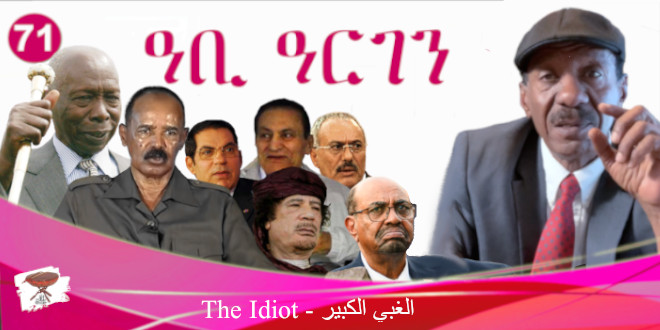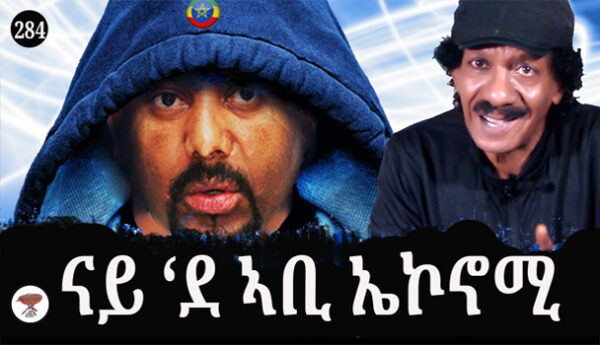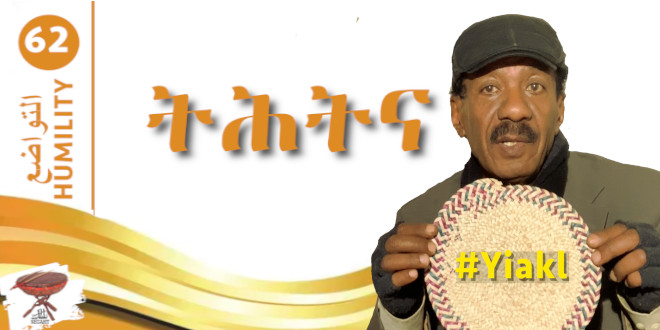Negarit 318: Beware of Fake News and Misinformation
People often get swept up in the excitement of the latest news but fail to fully process or verify it. News can be addictive—like a fleeting high, it provides temporary satisfaction before the craving for another fix takes over. This endless cycle—full of false hopes, manipulation, emotional blackmail, and victimization—seems never-ending. But why do so many willingly submit to it?
Propaganda is one of the most dangerous forms of manipulation. Governments and media outlets often flood people with feel-good stories about progress—new roads, housing, power grids, etc. Even after the excitement wears off, many hold onto these promises that are not fulfilled. Eritrea is a perfect example. After its independence in 1991, most of the promised social and economic advancements never materialized. Yet, there are still people who believe these promises, staying lost in a haze of hope and illusion.
When you confront them with these unfulfilled promises, they deflect blame: “The government never said that. If you believe these things, you’re the one at fault.” The regime faces no accountability, and the people are trapped in an emotional roller coaster, oblivious to the constant deception.
Think about it: when we break a promise to a child—like failing to deliver promised candy—we’re called liars. So, why do adults continue to accept unfulfilled promises? The people who perpetuate these lies follow a familiar pattern: when challenged, they deny that there were promises; they shift the blame on you and onto others. With no accountability, the public is left in a continuous cycle of emotional manipulation. It’s astonishing how a nation can be deceived for so long.
The Rise of Suspicious News Outlets
Recently, rumors circulated that Saudi Arabia would invest $1-2 billion in Eritrea’s Assab port. The news quickly gained traction but seemed more like misinformation or a strategically crafted propaganda piece. Despite being widely reported, no Saudi or Eritrean official outlets confirmed the story. Yet many “news kiosks” jumped on it, using it as clickbait or as propaganda, even though it was clearly unverified.
There are several outlets focusing on the Horn of Africa, whose sudden interest in the region raises suspicions. They often spread unverified information and sensationalized headlines to boost views. Many of them are operated by individuals recycling second-hand rumors, often with questionable or partisan agendas. The UAE is suspected to be behind some of these efforts. They are like transient campers—able to pack up and disappear at any time.
Since the Yemeni civil war began, the UAE has been deeply involved in the region. It established a military base across the Red Sea in Eritrea, only to later abandon it and then forge an alliance with Ethiopia. The UAE has developed a misinformation network, training certain individuals chosen by the Eritrean ruling party to help in its online activities.
Propaganda And Rewriting Narratives
In September 2020, a YouTube channel called “Military and Foreign Affairs Network” gained attention for its coverage of Ethiopia. Amid the anxieties of the Covid-19 pandemic and the ongoing Tigray conflict, the presenter—who spoke in a flawless American accent—was assumed to be a military expert. The channel quickly became the go-to source for news about Ethiopia (and a favorite of local news recyclers), only to stop posting content after two years. The channel pivoted to focusing on its original region, Ukraine, Russia, and China, after its two-year stint on Ethiopian affairs.
The presenter, who called himself “The Voice of Reason,” quietly shifted topics without explanation. His channel’s sudden departure from Ethiopian matters left many wondering if his true motivations were aligned with outside political interests.
“My Views on the News” Questionable Content
In September 2020, another channel, “My Views on the News,” emerged, focusing on Ethiopia. The channel, run by a man named Sajid, focused on populist topics and packaged them as “breaking news.” The presenter often frames his video titles as questions, such as “What’s happening in Tigray?” or “What’s Fano doing?” “Where’s geetaachooo?” Seebbet niigaa did this and dbreetsiyen did that… He claims to have “exclusive sources,” yet his information cleverly crafted and rarely verified and his videos are riddled with mistakes and half-truths. For example, he claims that the Ethiopian army was taking positions on the Eritrean-Ethiopian border, only to later claim the Eritrean army began doing the same on the other side the border.
Sajid has often amplified rumors, including the story about the $1-2 billion investment in Assab port, but his evidence rarely checks out. Yet, he has become a significant source for lazy news recyclers in the region who help spread more confusion.
I spoke with Sajid over a year ago, and his explanations to my questions didn’t satisfy my concerns. He claims to earn his livelihood from YouTube, which explains the constant production of videos. Yet, he admits that he has never visited the Horn of Africa, doesn’t speak any languages from the region, and operates alone. Despite his frequent travel, his status remains in question. Is he linked to the UAE in some way? While I cannot say for sure, I harbor doubts.
The Role of Intelligence Agencies, Lobbyists, and Propaganda
Embassies and intelligence agencies frequently gather information and grade it—some of it is a little curated rumors that are usually passed to media outlets, including YouTube channels. These channels, knowingly or unknowingly, often become vehicles for propaganda, spreading anxiety and confusion. Sajid’s channel, for example, shifted focus from the Eastern Mediterranean to the Horn of Africa, raising questions about his motivations. His ties to countries like Azerbaijan only add to the mystery. If mercenaries jump from one conflict region to another, it’s understandable; others must have a good reason to get involved.
Sajid has published over 6,500 videos in just 53 months, averaging four videos a day. While impressive, it’s hard to believe this is solely sustained by YouTube revenue. His focus on the Horn of Africa—an area he has never visited and whose languages he doesn’t speak—raises red flags. Those who are invested in the region are deeply concerned about the potential consequences of such activities.
The UAE’s involvement in the Horn of Africa cannot be ignored. Despite its wealth, the UAE has caused instability in countries like Libya, Sudan, Yemen, and Somalia. Its involvement in Ethiopia, particularly with Prime Minister Abiy Ahmed, has been a source of tension. Suspect news channels may be part of a broader effort to control the narrative in the Horn of Africa, with foreign powers like the UAE pulling the strings.
Conclusion
The situation triggers genuine curiosity. For instance, how do people like Sajid manage to travel so frequently while living off YouTube income? Given the dubious sources and questionable focus on the Horn of Africa, one can’t help but wonder who’s truly behind those people. And why do they focus so intensely on spreading sensationalized news in a region that is already fatigued with years of conflicts? The citizens of the region, particularly the elite, need to be aware of that and strive to find a solution. They should start by exposing fake news peddlers for the good of the region’s people.





Awate Forum